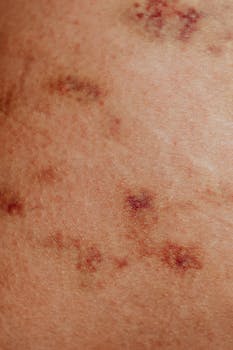
More Allergy, Asthma & Infectious Disease Articles
Identifying Common Diseases That Trigger Hives in Adults

Hives, also known as urticaria, are itchy, raised welts that can appear on the skin due to various triggers. A common concern for many adults is identifying the diseases that cause hives. These outbreaks can range from mildly inconvenient to severely distressing, affecting quality of life and requiring medical attention.
Understanding Diseases That Cause Hives in Adults
Hives are often thought to be triggered solely by allergens or environmental factors, but in reality, several diseases can cause hives in adults. Identifying these underlying illnesses is crucial for effective management and treatment.
Common Diseases Linked to Hives
Several diseases are known to potentially lead to hives in adults. Knowing these conditions helps in seeking appropriate medical diagnosis and treatment. Here, we explore some common diseases and their connection to hives.
Autoimmune Diseases
Autoimmune diseases can sometimes be an underlying cause of hives. Conditions such as lupus, rheumatoid arthritis, and thyroid disorders are involved. In these diseases, the immune system mistakenly attacks the body’s own tissues, which can lead to skin reactions, including hives. Management usually involves medications to control the immune response under the guidance of a healthcare provider.
Infections
Infections, both viral and bacterial, may also lead to hives. For instance, hepatitis and mononucleosis infections have been associated with urticaria. The body’s natural defense process in fighting off infections can inadvertently lead to hives as a form of skin inflammation. Consulting with healthcare professionals for appropriate treatment is advisable.
Chronic Conditions
Chronic conditions like chronic kidney disease and chronic liver disease can also be culprits. These diseases might cause a buildup of certain substances in the blood that the body attempts to eliminate through the skin, resulting in hives. These require ongoing management to minimize symptoms.
Hormonal Disorders
Hormonal disorders, such as thyroid disease, can cause hives due to imbalances in hormone levels. These imbalances can trigger immune responses and affect skin health. It’s important to monitor and manage these hormonal changes to reduce the incidence of hives.
Managing and Treating Hives
While understanding the disease-related causes of hives is essential, effective management is equally important. Treatment often focuses on the underlying condition causing the hives. Medications like antihistamines and corticosteroids can help alleviate symptoms. Seeking care from a functional medicine practitioner can aid in addressing the root causes of hives by adopting a holistic approach. Learn more about how functional medicine experts help patients manage such conditions.
For additional information about hives and related health concerns, consider visiting reputable resources like Wikipedia’s Health page for general health information.
Takeaways
- Hives can be triggered by various diseases, not just allergens.
- Autoimmune and chronic diseases are common underlying causes.
- Proper diagnosis and treatment focus on managing the root causes.
- Consultation with healthcare providers is essential for appropriate treatment.
- Functional medicine can offer holistic management strategies for hives.
Frequently Asked Questions
What are common diseases that cause hives in adults?
Common diseases include autoimmune conditions like lupus and thyroid disorders, chronic diseases like liver and kidney issues, and infections such as hepatitis.
Are hives always related to underlying diseases?
No, hives can also be triggered by allergens, stress, or environmental factors. However, persistent or frequent hives may warrant investigation for underlying diseases.
How are hives related to autoimmune disorders?
Autoimmune disorders can lead to hives because the immune system attacks the body’s own cells, possibly resulting in the skin reacting with hives.
Can diet affect the occurrence of hives?
Yes, certain foods can trigger hives, especially if you have a food allergy or sensitivity. Consulting with a healthcare provider can help identify dietary triggers.
What should I do if I frequently experience hives?
If you frequently experience hives, it’s important to consult a healthcare professional to explore potential underlying causes and receive appropriate treatment.
Other Articles You May Find of Interest...
- Identifying Common Diseases That Trigger Hives in Adults
- Do Black Ants Bite and What to Do If Bitten by One?
- Recognize the Hidden Dangers: 17 Signs of Mold Illness and Poisoning Symptoms You Shouldn’t Ignore
- Is Pistachio Poisoning Putting Your Health at Risk?
- Permanent Solutions for Allergic Rhinitis Relief
- What Are Basophils and Their Role in Your Blood Test Results?
- Unexpected Lip Bumps: What Causes Them and When to Seek Help














